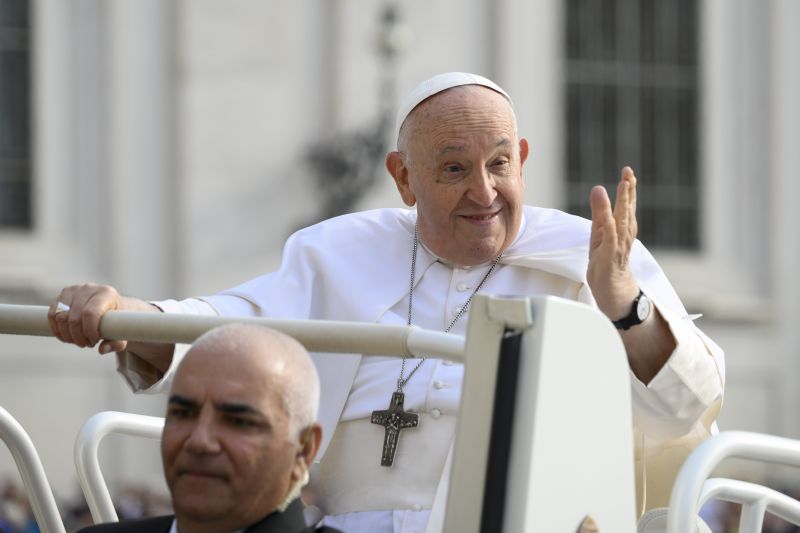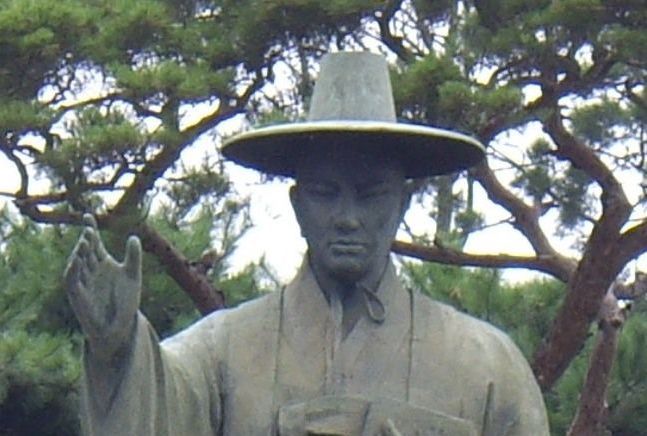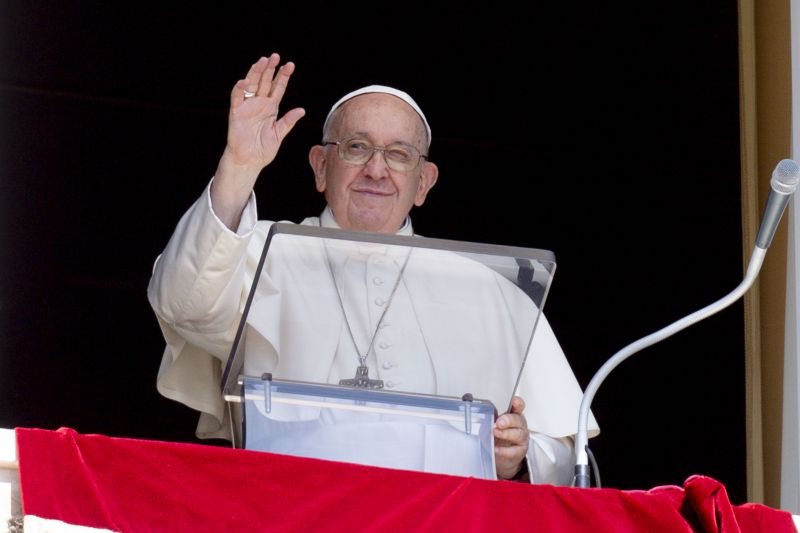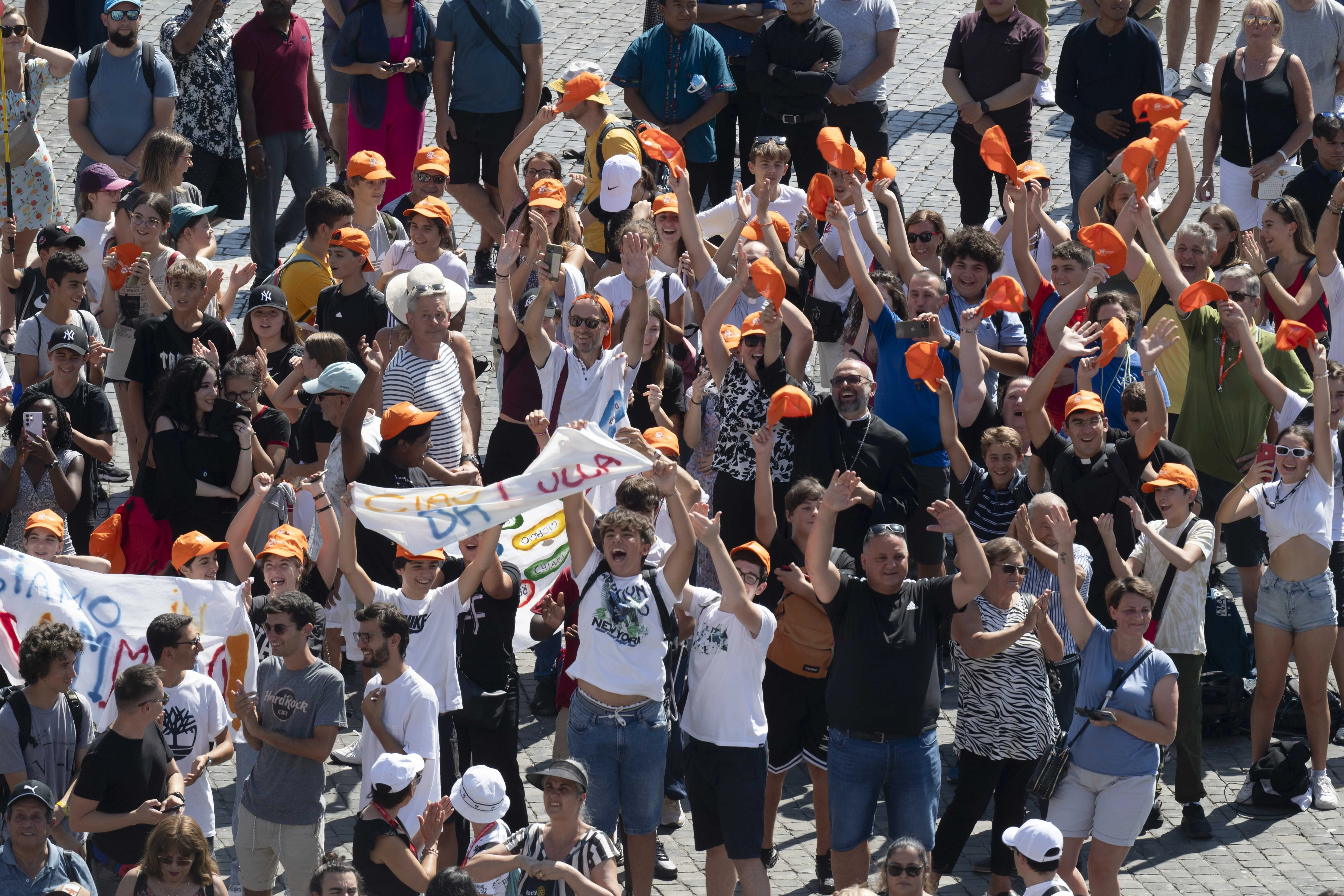
Controversial Iraqi Christian didn’t meet with Pope Francis privately, Vatican confirms
 Pope Francis waves to pilgrims in St. Peter’s Square at the Vatican at his general audience on Sept. 13, 2023. / Credit: Vatican Media
Pope Francis waves to pilgrims in St. Peter’s Square at the Vatican at his general audience on Sept. 13, 2023. / Credit: Vatican Media
Washington, D.C. Newsroom, Sep 13, 2023 / 17:46 pm (CNA).
An Iraqi Christian figure involved in a dispute with the leader of the Catholic Church in the country was not, as he has implied online, granted a private audience with Pope Francis, the Vatican clarified on Tuesday.
Rayan Al-Kildani, whose name means “Rayan the Chaldean,” is a Christian lawmaker and leader of the paramilitary group the “Babylon Brigades.” He has previously been sanctioned by the United States for alleged human rights abuses, including the cutting off of a detainee’s ear.
In addition, Al-Kildani has publicly clashed with the leader of the Chaldean Catholic Church, Cardinal Louis Sako, over allegations by Sako that Kildani has been extorting Christians in the Nineveh Plains, a historically Christian but embattled region. Sako also has faulted Al-Kildani for his apparent desire to take over control of the Chaldean Church’s properties in Iraq.
On social media Sept. 7, Al-Kildani shared photos and videos that seemed, at least to some observers, to imply that he had a private meeting with Pope Francis. Al-Kildani released a statement on Facebook after his visit to the Vatican along with photos of the encounter, one of which had been edited to blur the crowds in the background.
“At the end of the prayer, al-Kildani met His Holiness the pope… and conveyed to him the greetings of the Iraqi government and the Iraqi people, asking him for his prayers for Iraq. In turn, His Holiness the pope granted Kildani his apostolic blessing and gave him a special gift, which is the rosary, blessed by His Holiness,” Al-Kildani said.
كانت لنا زيارة موفقة الى ايطاليا وختامها كان مباركا في لقاء قداسة البابا.
We had a successful visit to Italy, and its conclusion was blessed to us by the meeting with His Holiness Pope Francis. pic.twitter.com/MgVvQ7uUXS
— ريان الكلداني Ryan Chaldean (@RyanAlchaldean) September 7, 2023
The Vatican in a brief Tuesday statement said Pope Francis’ meeting with Al-Kildani was during the weekly general audience.
“During the general audience in St. Peter’s Square on 6 September last, His Holiness Pope Francis greeted some of the people present, as is customary. Among them was a group of Iraqis, which included Mr. Rayan Al-Kildani, with whom some brief words were exchanged,” the Vatican Press Office said.
Pope Francis’ general audiences are held in St. Peter’s Square and attract thousands of pilgrims from around the world, many of whom get the chance to greet the pope and take pictures with him. Al-Kildani previously asked for a personal meeting with the pope in 2021 when Francis visited the country, and again in April and was refused both times, the Washington Institute, a D.C.-based think tank, noted.
But in a Wednesday Facebook post, Al-Kildani said the Vatican’s statement served to confirm “its prior knowledge of the presence of Mr. Ryan Al-Kaldani among the Iraqi delegation in the interview with His Holiness the pope.”
Al-Kildani is a controversial figure not only because of his alleged crimes but also because of his public disputes with his Church’s hierarchy.
In July, Cardinal Sako announced his withdrawal from his seat in Baghdad after Iraqi President Abdul Rashid revoked a decree recognizing him as head of the Christian Church in Iraq, which the government had done since 2013. The Chaldean Catholic Church is an Eastern-rite church in full communion with the Holy See, with about 300,000 members in the country and thousands more around the world. Once a nation with more than a million Christians, Iraq has seen its highly diverse Iraqi Christian community decimated by the Islamic State and other conflicts since 2003.
Sako said in July that he will be taking up residence in a monastery in Kurdistan, an autonomous region of Iraq, where he will continue to lead the Chaldean Church. Al-Kildani’s militant group engaged in a “deliberate and humiliating campaign” against his office, which included “incorrect” legal advice to Rashid that helped lead to the president’s decision, Sako charged in his announcement letter.
According to reporting by ACI Mena, CNA’s Middle East and North Africa news partner, Sako has also accused Al-Kildani of seizing Christian seats in the Iraqi Parliament without real representation for Christians. As a result, Al-Kildani has taken Sako to court for slander. The proceedings are ongoing.
In 2019, the U.S. Department of the Treasury sanctioned Al-Kildani because he was engaged in “serious human rights abuses” in his capacity as head of a paramilitary group. The group Al-Kildani leads in purportedly “the primary impediment to the return of internally displaced persons to the Ninevah Plain,” the department said.
According to the Treasury Department, Al-Kildani’s group “illegally seized and sold agricultural land” and “the local population has accused the group of intimidation, extortion, and harassment of women.” A video was circulated among human rights groups showing Al-Kildani cutting off the ear of a handcuffed detainee, the Treasury Department’s report said.





